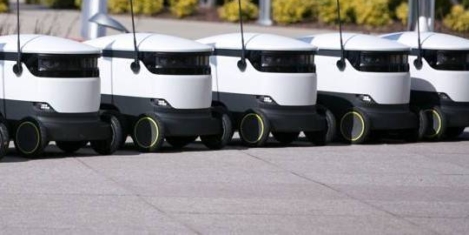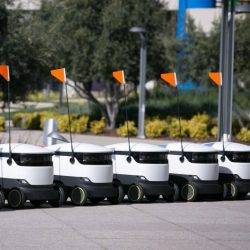To provide the best experiences, we use technologies like cookies to store and/or access device information. Consenting to these technologies will allow us to process data such as browsing behaviour or unique IDs on this site. Not consenting or withdrawing consent, may adversely affect certain features and functions.
The technical storage or access is strictly necessary for the legitimate purpose of enabling the use of a specific service explicitly requested by the subscriber or user, or for the sole purpose of carrying out the transmission of a communication over an electronic communications network.
The technical storage or access is necessary for the legitimate purpose of storing preferences that are not requested by the subscriber or user.
The technical storage or access that is used exclusively for statistical purposes.
The technical storage or access that is used exclusively for anonymous statistical purposes. Without a subpoena, voluntary compliance on the part of your Internet Service Provider, or additional records from a third party, information stored or retrieved for this purpose alone cannot usually be used to identify you.
The technical storage or access is required to create user profiles to send advertising, or to track the user on a website or across several websites for similar marketing purposes.
 The performance management needs of the changing workplace
The performance management needs of the changing workplace







 A major global report has revealed a lack of confidence in data is limiting corporate success in the emerging era of robotics and automation. The global research launched by Qlik, has revealed an escalating skills gap preventing business decision-makers asking the right questions of data and machines. Despite
A major global report has revealed a lack of confidence in data is limiting corporate success in the emerging era of robotics and automation. The global research launched by Qlik, has revealed an escalating skills gap preventing business decision-makers asking the right questions of data and machines. Despite 




 Almost half (49 percent) of companies are struggling to find skilled workers as digitisation and automation cause significant change in the skills businesses look for in professionals, according to new data from Robert Half UK. As a result, one fifth (21 percent) are now looking to recruit candidates with exceptional soft skills, with a view to developing the desired technical skills on the job. In the Robert Half research, UK business leaders consider an openness to new ideas (28 percent), an openness to change (26 percent) and good communication abilities (19 percent) as key attributes and will prioritise these areas when considering new talent. Digitisation and automation are rapidly evolving the business world. Companies are having to quickly adapt to the changing world of work, and are looking for employees who can keep pace,” says Matt Weston, UK Managing Director at Robert Half.
Almost half (49 percent) of companies are struggling to find skilled workers as digitisation and automation cause significant change in the skills businesses look for in professionals, according to new data from Robert Half UK. As a result, one fifth (21 percent) are now looking to recruit candidates with exceptional soft skills, with a view to developing the desired technical skills on the job. In the Robert Half research, UK business leaders consider an openness to new ideas (28 percent), an openness to change (26 percent) and good communication abilities (19 percent) as key attributes and will prioritise these areas when considering new talent. Digitisation and automation are rapidly evolving the business world. Companies are having to quickly adapt to the changing world of work, and are looking for employees who can keep pace,” says Matt Weston, UK Managing Director at Robert Half.









 There have already been warnings from workplace experts that the legal profession isn’t one to choose for those starting out on their careers as it’s ripe for automation, and a new survey claims these changes are happening fast. According to a survey of over a 100 law firms by CBRE, nearly half (48 percent) are already utilising Artificial Intelligence (AI) and a further 41 percent have imminent plans to do so. Of the firms already employing AI, 63 percent of firms are using it for legal document generation and review, and the same proportion for e-discovery. Due diligence (47 percent) and research (42 percent) were also common applications, along with compliance and administrative legal support (each 32 percent). The use of AI will affect employment levels, with the greatest impact predicted at the junior and support levels, where nearly half (45 percent) of firms believing that there will be a reduction in headcount. In contrast, only 7 percent of firms believe that senior headcount levels will be reduced.
There have already been warnings from workplace experts that the legal profession isn’t one to choose for those starting out on their careers as it’s ripe for automation, and a new survey claims these changes are happening fast. According to a survey of over a 100 law firms by CBRE, nearly half (48 percent) are already utilising Artificial Intelligence (AI) and a further 41 percent have imminent plans to do so. Of the firms already employing AI, 63 percent of firms are using it for legal document generation and review, and the same proportion for e-discovery. Due diligence (47 percent) and research (42 percent) were also common applications, along with compliance and administrative legal support (each 32 percent). The use of AI will affect employment levels, with the greatest impact predicted at the junior and support levels, where nearly half (45 percent) of firms believing that there will be a reduction in headcount. In contrast, only 7 percent of firms believe that senior headcount levels will be reduced.


















May 16, 2018
A 21st Century take on the idea of the time capsule that tells us something about the way we work
by Freddie Steele • Comment
More →